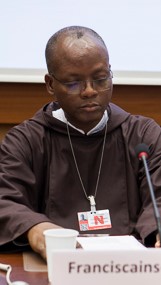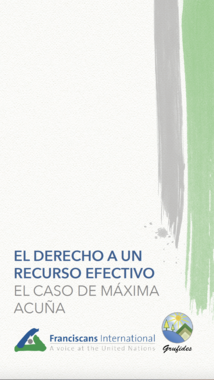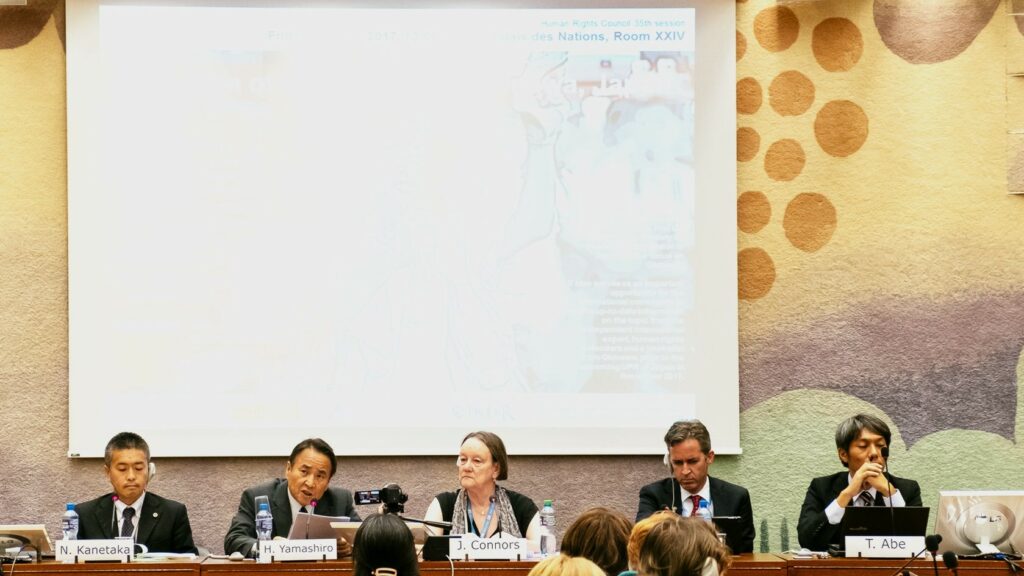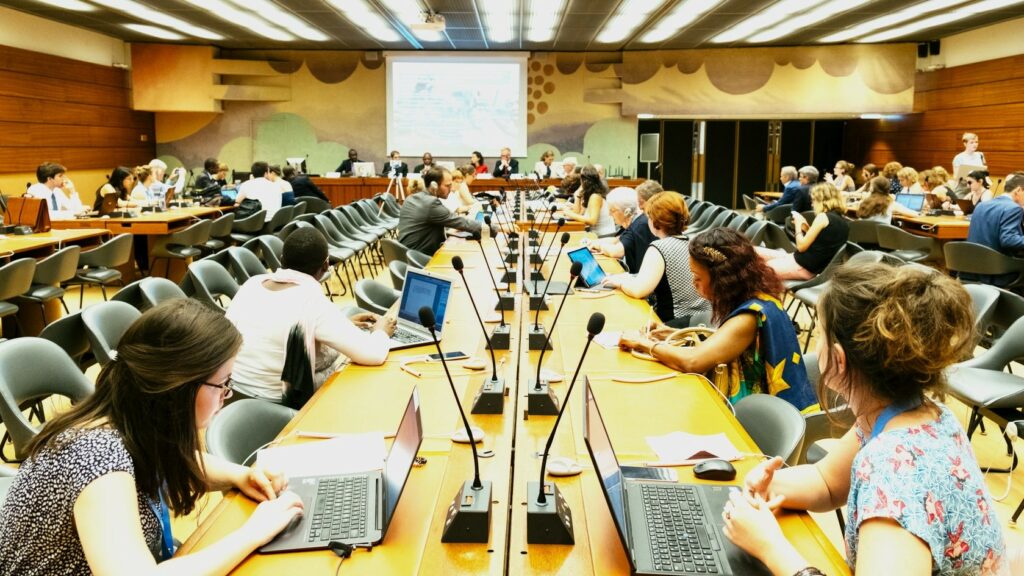ENGLISH
Franciscans International’s Advent 2017 Reflection focuses on the four women mentioned in the genealogy of Jesus in the Gospel of Matthew. These four women will serve as an inspiration to identify and reflect on contemporary human rights issues that disproportionately affect women today.
ITALIANO
La Riflessione sull’Avvento 2017 di Franciscans International si concentra sulle quattro donne che nel Vangelo secondo Matteo sono citate nella genealogia di Gesù. Queste quattro donne ci saranno di ispirazione per identificare e riflettere su problemi contemporanei relativi ai diritti umani che vanno oggi a incidere sulle donne in maniera sproporzionata.
ESPAÑOL
La Reflexión de Adviento 2017 de Franciscans International se centra en las cuatro mujeres mencionadas en la genealogía de Jesús en el Evangelio de Mateo. Estas cuatro mujeres servirán de inspiración para identificar y reflexionar sobre temas contemporáneos de derechos humanos que afectan de modo desproporcionado a las mujeres hoy.
DEUTSCH
Die Adventsreflektion von Franciscans International beschäftigt sich dieses Jahr mit vier Frauen, die im Stammbaum Jesu im Kapitel 1 des Matthäusevangeliums genannt werden. Diese vier Frauen dienen als Inspiration, um aktuelle Menschenrechtsprobleme zu reflektieren, die überwiegend Frauen betreffen.
FRANÇAIS
Franciscans International vous propose une Réflexion pour le temps de l’Avent 2017, qui met en lumière les quatre femmes mentionnées dans la généalogie de Jésus de l’Évangile selon Saint Matthieu. Ces quatre femmes sont sources d’inspiration pour réfléchir aux enjeux liés aux droits humains qui affectent les femmes de façon disproportionnée aujourd’hui.
Subscribe to Franciscans International Newsletter here.










